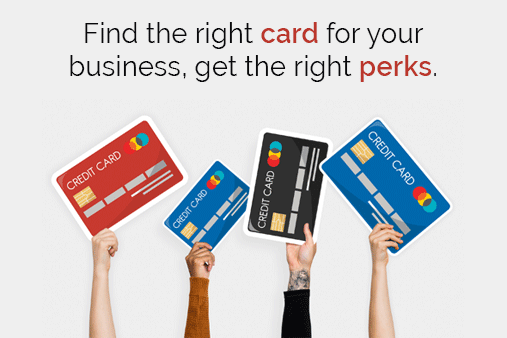How to Establish Business Credit for the First Time
First-time business credit for a new business or startup is an opportunity for it to leverage capital for future growth opportunities and to increase its overall valuation quickly.
Our How to Establish Business Credit for the First Time guide will teach you the basics of business credit and establishing business credit for the first time.
Looking to Build Business Credit? Apply for an easy approval business credit card from BILL and build your business credit quickly.

Why Build Business Credit in the First Place?
Business credit means more cash flow for a business. Cash flow is a business’s number one asset and protection. Business credit enables a firm to acquire funds that can be used to buy goods and services, pay employees, and take care of bills. Without access to capital, which includes leveraging business credit, businesses can struggle and even altogether fail. There are several reasons to build business credit.
Reasons a business may want to build business credit:
- Purchase equipment. A business may want to purchase equipment that actually can save it money in the long run, while helping it to grow faster in the short haul.
- Ensure sustainability. A cash-rich company can weather economic storms much better than a company with limited resources and access to capital. By having reserves of capital on hand, a company can still function, even if it isn’t turning a profit.
- Build business relationships. Businesses rely on partnerships with other companies (e.g., vendors, suppliers, manufacturers, merchants, other business people, etc.) to gain a competitive advantage and dominate their markets. Relationships are built on trust that’s built when a business repays its debts and delivers on its promises, so all parties mutually benefit.
- Increase in value. The more business credit a company has, the more valuable it is to investors and possible buyers. You’ll want to keep this point in mind when learning how to write a business plan so that you can quickly elevate the value of your business.
Recommended: The first step to building business credit is establishing net-30 accounts. Read our Net 30 Vendors guide to learn more.
First-Time Business Credit Mistakes to Avoid
It is important for first-time business owners to set-up business credit the right way. When establishing business credit for the first time, too often, business owners make consequential mistakes that affect their business credit scores and their overall valuation.
Here are some of those mistakes:
- Not forming a legal business entity: To establish business credit, you’ll need a legal business formation (i.e., a limited liability company (LLC)). This way, you protect your personal assets and credit from your business assets and credit. You want to keep both separated, so one doesn’t hurt the other (i.e., if your business gets sued, you don’t lose your life savings, home, and other personal belongings).
- Not choosing net-30 vendors that report to the business credit bureaus: Many companies will give you a net-30 account, but the question is: Will they report your payment history to the business credit bureaus? If those tradelines are not being reported on your business credit reports, you’re not building business credit.
- Not understanding how business credit scores are calculated: Did you know that just paying your creditors off every month on time will not get you a perfect business credit score? You actually have to pay early, but there are other things to know also about business credit scores.
- Not establishing credit the right way: There is a process for establishing business credit. Most often, business owners do not follow this process and, in doing so, hurt their business credit.
Recommended: Try Nav to get your business credit score report and track your progress.
First-Time Business Credit Setup Instructions
There is a step-by-step protocol to follow to establish and build business credit. Follow these steps to avoid making mistakes.
Form an LLC
The first step to building business credit is making sure you establish your business as a separate legal entity. This means forming a corporation or LLC. Since corporations are complex structures, usually utilized by larger corporations, we recommend learning how to start an LLC.
Establish Fundability
To qualify for business credit, your business must be fundable. This means you’ll need to get your ducks in a row and do the following:
- Get an Employer Identification Number (EIN).
- Get a business phone line that has a 411 directory listing.
- Have a physical business location and address (i.e., separate from a post office (P.O) box, UPS mailbox, or virtual office location).
- Make sure your business address is the same address on all your business documents, filings, etc.
- Make sure your business name is exact on all business documents, like registration and formation paperwork, secretary of state filings, business licenses, etc.
- Have a website with all your information correctly stated.
- Have an email address associated with your business website domain (i.e., not an @gmail.com or @yahoo.com, but a @yourdomain.com email address).
- Set up a business bank account.
- Partner with companies that help build business credit.
Recommended: Learn how to establish business fundability.
Establish Net-30 Accounts With Vendors Who Report to the Business Credit Bureaus
Net-30 accounts are lines of credit granted to businesses by vendors. There are a couple of things you should know about net-30 vendors:
- Net-30 accounts must be paid within 30 days of the invoice date.
- Pay as soon as you can. The sooner you pay these obligations, the higher your credit score.
- Only some net-30 vendors report to the credit bureaus; some do not.
For the most part, you want to do business with net-30 vendors who report to the business credit bureaus. How do you know which vendors report? You can, and should, ask every vendor you are considering doing business with if they report, how frequently, and to which business credit bureaus specifically.
Recommended: Check out our net-30 vendor list, where we detail which credit bureaus these companies report to. This will help you get started building business credit.
Establish Store Credit Card Accounts
After six months has passed, it is time to establish more lines of business credit since you now have a six-month history of reported tradelines on your business credit reports. At this point, you’ll likely qualify for in-store credit cards. These cards offer revolving lines of credit that can further help your business credit profile.
Recommended: Check out our review of the top in-store credit cards.
Apply for a Working Capital Loan
After six more months have passed, apply for a working capital loan. This is a line of credit extended by a bank, which you can use to fund your business, as you need. You only pay interest on what you spend.
The benefits of this type of loan are many:
- Frees up cash flow. Use the money to pay payroll, bills, anything needed to run your business. This keeps you from having to spend the money in your business bank account.
- Pay interest only on what you spend, not the line of credit.
- Keep sole ownership interest in your business. Having a working capital loan may mean the difference between remaining the sole owner vs. having to take on partners (e.g., venture capitalists).
- Get financed faster and easier. Working capital loans are short-term loans and are easier to qualify for, which means you just have to fill out a few forms to get approved.
- No collateral needed to qualify. Working capital loans do not require you to pledge collateral against the loan; they’re unsecured lines of credit. This means you are less at risk of losing assets already in your possession.
- Builds business credit faster. Banks regularly report to the credit bureaus, ensuring you get tradelines placed in your Dun & Bradstreet, Experian Business, and Equifax Small Business credit reports.
Recommended: Learn more about how to acquire working capital.
Apply for a Secured Business Credit Card
There are two types of business credit cards:
- Secured business credit cards (i.e., you pay a deposit, usually the amount of the credit card limit)
- Unsecured business credit cards (i.e., you do not pay a deposit; the credit line is based on your business credit profile and business credit scores)
Applying for a secured business credit card provides a few advantages:
- You get all the advantages of a regular business credit card (e.g., rewards, points, discounts, insurance, cashback, purchase security, etc.)
- Business credit card companies report to the business credit bureaus. This means more credit that you control, helping your credit score.
- Get an unsecured business credit card without an SSN.
- Keep better records. Credit card statements make it easier for you and your CPA to file your business taxes.
- Free up cash flow. You can better manage your income, having the option of using your secured business credit card.
Recommended: Learn how to get a secured business credit card.
Apply for an Unsecured Business Credit Card
Wait a year after you’ve started using your secured business credit card to apply for an unsecured business credit card. This way, you don’t have to apply with your SSN number, affecting your personal credit score. Instead, you can apply using just your EIN number.
There are advantages of having an unsecured business credit card:
- Higher line of credit. With unsecured business credit cards, card issuers usually issue a credit line equal to the highest line of credit previously established. This means if you have a net-30 vendor who has issued you a $50,000, because of the solid relationship you’ve forged with them, your unsecured credit card balance would be for $50,000. This is a powerful way of increasing your quantify of credit, creating more opportunities for your company to grow, etc.
- Get separate cards for employees. These cards are trackable, help you manage your business finances better, and ensure you take advantage of tax breaks during tax time.
- Build more value into your business. If you decide to sell your business, having an unsecured business credit card attached to your business instantly shows investors and buyers that you know how to manage a business and operate successfully.
Recommended: Learn how to get an unsecured business credit card without an SSN number.
Summary
Learning how to set up business credit for the very first time can seem like an intimidating task. There are many variables to consider. The instructions provided here are based on sound principles that work.
Here’s what you need to remember:
- Think of a business as a two-sided value equation: One side deals with creating profit for your business. The other side deals with creating business credit (i.e., business fundability). Investors value businesses based on both sides of the equation. This is why building business credit is just as important as creating business profits.
- Follow these steps in order:
- Learn how to manage business credit as strictly as you manage your business.
- Pull business credit reports regularly. We recommend once a month, a minimum once per quarter. Make sure your scores are rising. Make sure your information is correct, and that vendors are reporting regularly and accurately.
Recommended: Learn how to pull your Dun & Bradstreet, Experian Business, and Equifax Small Business credit reports, and learn how to get your business FICO Score.


